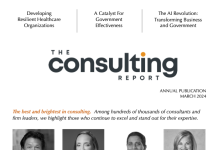As climate projects seek out the funding needed to further develop and operate at scale, early investors willing to close the gap can reap higher returns, says Hubertus Meinecke, Managing Director, Senior Partner, and Global Leader of Boston Consulting Group’s Climate and Sustainability Practice. In an interview with ZAWYA.com, a part of Refinitiv Middle East, the BCG executive shared his thoughts on key takeaways from COP27 and what lies ahead for COP28, slated to be hosted in the UAE in 2023.
The need for global adaptation has become clear, but still faces a funding gap in the hundreds of billions. In spite of multiple commitments to transitional funding made by governments at COP27, private sector collaboration and funding will prove crucial to bringing scalability to emissions-reducing efforts across the value chain. Meinecke claims that early investors can reap higher returns in $3-10 trillion cumulative investments by 2050, along with realizing successes in net-zero execution and disclosure.
Gray to green investment themes will become critical in the pathway to financing economic decarbonization. While leading banks and investors are building funding capabilities to capture first mover advantage, businesses can begin pursuing high-impact opportunities now by partnering with the growing pools of concessional finance, potentially avoiding the high costs of climate inaction.
The technology driving climate efforts has evolved rapidly, and artificial intelligence (AI) is poised to help manage climate issues due to its capability to gather, interpret, and present large and complex datasets on impact, emissions, and more. AI can be used to support stakeholders in utilizing a more data-driven, informed approach to reducing emissions and meeting net-zero targets, and can help with “big picture” efforts to reprioritize efforts toward the most at-risk regions.
Challenges like materials shortages, supply chain disruptions, and global inflation have the potential to curtail the implementation of energy transition projects, especially in African countries. Discussions at COP27 urged nations to create resilience and relief from current problems such as food security. Commitments, especially financial, are still far below the need, though there are opportunities for companies to partner to build consortia along the value chain as a risk-sharing mechanism.
While COP27 did not lead to large-scale, decisive action on many facets of the climate crisis, there is plenty of opportunity to build momentum going into COP28, and plenty of room for private investors to take advantage of early opportunities to close the investing gap left by governments. Though the challenges are numerous, so are the opportunities to help stave off the worst impacts of climate change and turn a healthy profit while doing so.

























